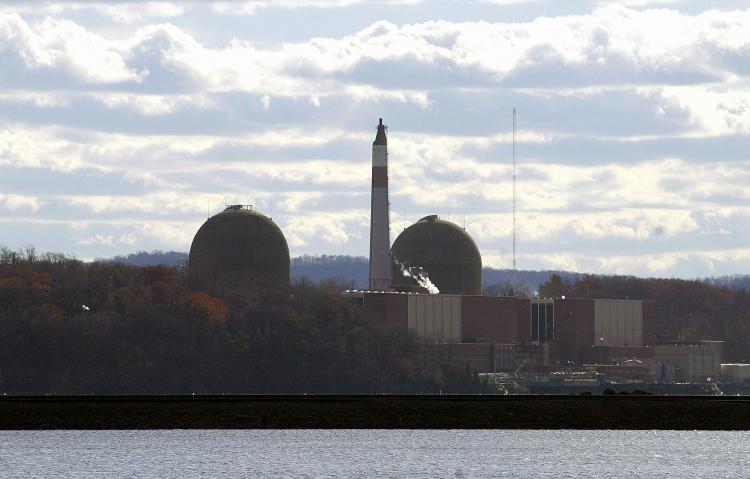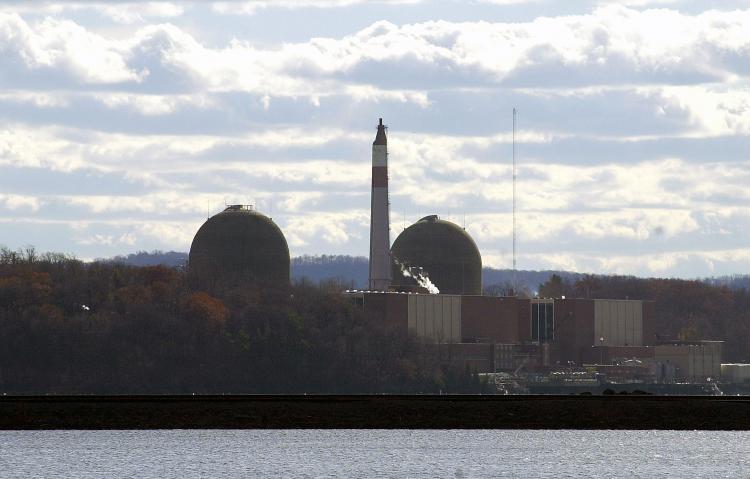NEW YORK—Indian Point nuclear facility in Westchester County, stands on a fault line. After disaster struck at Fukushima Daiichi power plant in Japan, the Nuclear Regulatory Commission (NCR) commenced an assessment of U.S. power plants that may be at risk in the event of an earthquake. The Indian Point plant was the No. 1 priority.
The plant’s operator, Entergy, has released a 60-second radio ad addressing the concerns of local residents. Site Vice President Joe Pollock says in the ad: “Indian Point has been designed to withstand an earthquake 100 times the magnitude of the strongest earthquake ever recorded in this area.”
Pollock points out that the tsunami caused the loss of power to cooling systems in the Japanese facility, not the earthquake. So, even though the site is at “seismic risk,” it does not necessarily follow that a repeat of what happened in Japan could come to Westchester.
“At Indian Point, we’ve added multiple layers of on-site backup power sources that are safe from flooding to assure our cooling systems will work whenever they are needed,” says Pollock.
Goc. Andrew Cuomo opposed the plant’s operations long before the crisis in Japan, deeming it a health risk to the 20 million people who live and work in the area.
Joseph Mangano, executive director of the Radiation and Public Health Project, a research and education group based in New York, published a study in 2009 showing the rates of thyroid cancer surrounding Indian Point to be 66 percent higher than the national average. The rate spiked after the plant came to town in the 1970s.
Susan McDermott, who lives in Canton, New York, is concerned about safety at the Indian Point facility, and also at the Oswego nuclear reactors closer to her home.
“I can only imagine the ordeal the Japanese people are going through and would never want to see something like it happen here. I am not a believer in the ‘it won’t happen here’ philosophy. I say, better to check it out and be sure they are safe,” writes McDermott in an e-mail.
The plant’s operator, Entergy, has released a 60-second radio ad addressing the concerns of local residents. Site Vice President Joe Pollock says in the ad: “Indian Point has been designed to withstand an earthquake 100 times the magnitude of the strongest earthquake ever recorded in this area.”
Pollock points out that the tsunami caused the loss of power to cooling systems in the Japanese facility, not the earthquake. So, even though the site is at “seismic risk,” it does not necessarily follow that a repeat of what happened in Japan could come to Westchester.
“At Indian Point, we’ve added multiple layers of on-site backup power sources that are safe from flooding to assure our cooling systems will work whenever they are needed,” says Pollock.
Goc. Andrew Cuomo opposed the plant’s operations long before the crisis in Japan, deeming it a health risk to the 20 million people who live and work in the area.
Joseph Mangano, executive director of the Radiation and Public Health Project, a research and education group based in New York, published a study in 2009 showing the rates of thyroid cancer surrounding Indian Point to be 66 percent higher than the national average. The rate spiked after the plant came to town in the 1970s.
Susan McDermott, who lives in Canton, New York, is concerned about safety at the Indian Point facility, and also at the Oswego nuclear reactors closer to her home.
“I can only imagine the ordeal the Japanese people are going through and would never want to see something like it happen here. I am not a believer in the ‘it won’t happen here’ philosophy. I say, better to check it out and be sure they are safe,” writes McDermott in an e-mail.






